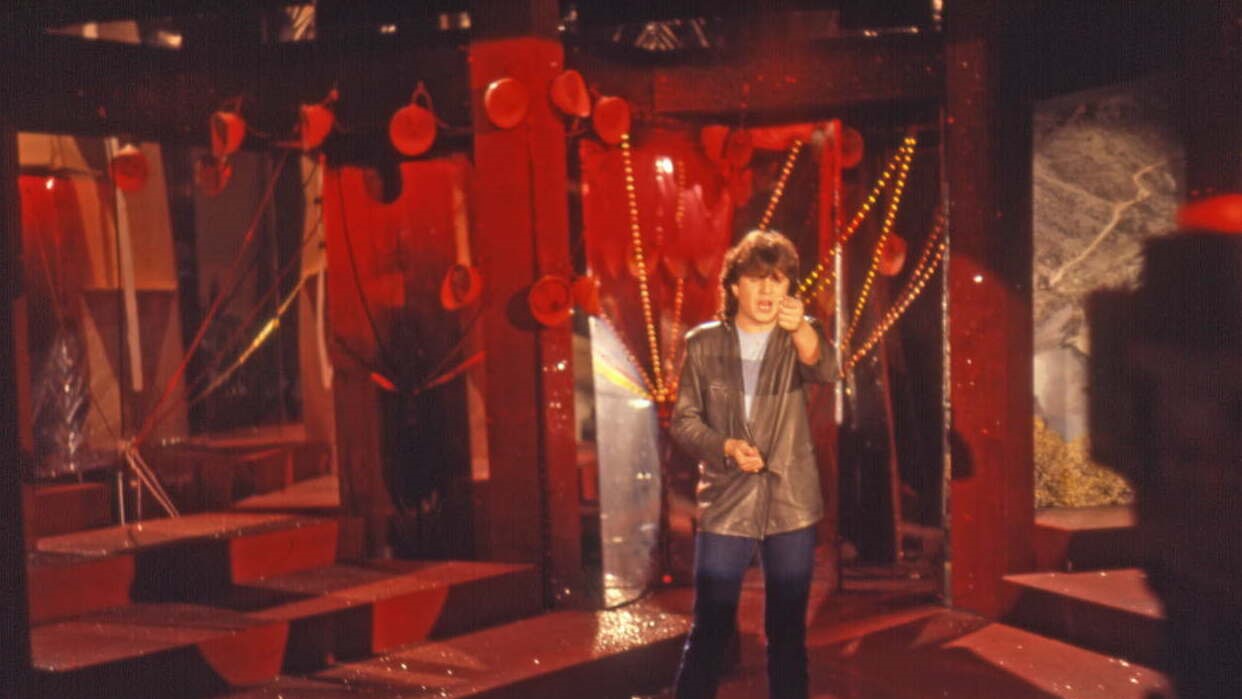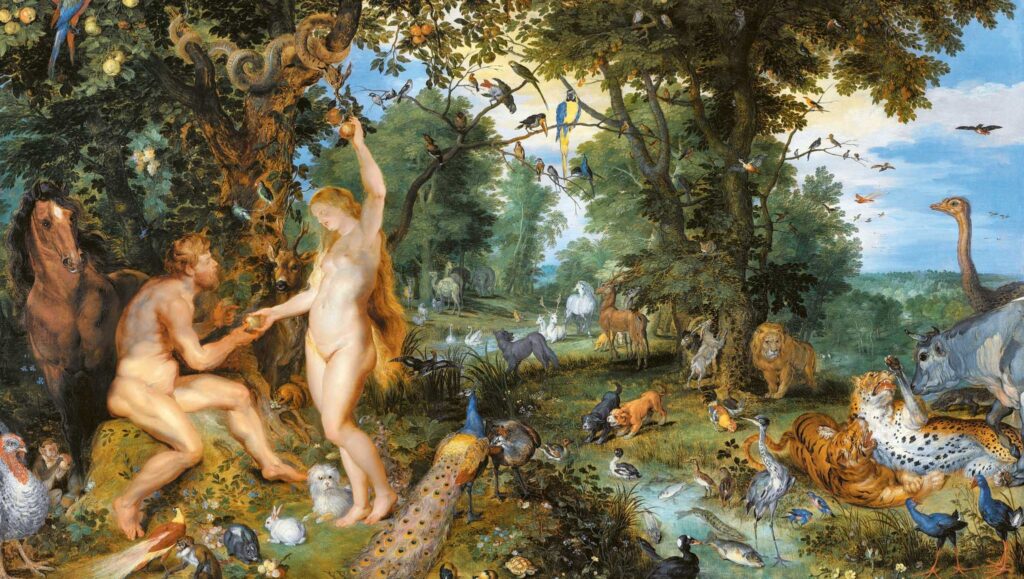What happens when a singer stops performing for applause and begins to question the act of performing itself? The following selection brings together three French chansons, each from a major figure in the tradition, where the subject is not love or politics, but fame, identity and the role of the artist.
In ‘Les Trompettes de la renommée’ (1962), Georges Brassens, known for his wit and irony, turns his pen against the machinery of celebrity. He refuses to trade his privacy for publicity and mocks the absurd expectations placed on public figures, making for a song that is a pointed defence of artistic integrity.
Jacques Brel’s ‘Jacky’ (1965) is theatrical and surreal. He imagines a series of exaggerated fantasies (cabaret crooner, international criminal and even God) each revealing a desire to be admired. But each role collapses under its own weight, and each refrain, pleading to be ‘handsome and stupid for just one hour,’ cuts through the bravado.
Daniel Balavoine’s ‘Le Chanteur’ (1978) is more modern and melancholy. It follows a young man who imagines becoming a star only to lose himself, as the bitterness behind ambition rapidly reveals itself.
Each song is best heard aloud. Listen before reading—or as you go.
Blowing the Wrong Horn: Brassens and the Cost of Notoriety
Brassens opens with biting irony, describing himself as a quiet, contemplative man, sleeping peacefully ‘on his laurel branch’, a clever metaphor for modest success. But he is told that this is not enough. He must ‘pay the ransom of glory’, meaning: expose his private life to maintain public interest. The ‘men of good advice’ insist he owes the public access to his secrets or risk being forgotten. The second verse pushes this absurdity further: must he name names and describe sex acts just to fuel publicity? If he reveals his lovers, ‘how many Penelopes will pass for absolute sluts?’ The cost of fame is not only privacy, but also dignity.
Brassens turns to the absurd lengths he is expected to go for fame: ‘Should I beat a drum with my genitals’, he asks, sarcastically, to feed the scandal pages. He mocks society’s obsession with sexual confession, refusing to ‘display his procreative organs’ like sacred relics. In the fourth verse, he recounts catching crabs from a noble lover. It is a scandalous and hilarious story—but should he shout it from the rooftops? ‘Madame la marquise gave me pubic lice!’ is precisely the kind of vulgar spectacle the press thrives on. But Brassens will not give it to them, as his satire is brutal, but his point is serious: privacy has value.
‘The desperation in the satire is striking: Brassens ridicules not just fame, but the public’s appetite for sexualized celebrity exposure at all costs’
Brassens jokes about his unlikely friendship with Père Duval, a famous singing priest. They coexist peacefully: ‘he lets me say merde, I let him say amen.’ But should Brassens betray him to the press for one scandalous anecdote? The farce continues in the sixth verse. He wonders if he needs a famous mistress—a literal ‘celebrity crotch’—to gain attention. Perhaps if he climbs a ‘mount of Venus’ on someone famous, the public will finally listen. The desperation in the satire is striking: Brassens ridicules not just fame, but the public’s appetite for sexualized celebrity exposure at all costs.
The seventh couplet takes an even more provocative turn. Brassens sarcastically asks if being gay or effeminate would make him more famous. He dismisses the idea quickly: ‘the pederastic crime no longer pays,’ he quips, pointing to how even taboos lose shock value in a fame-obsessed world. Finally, in the eighth verse, Brassens rejects it all. He prefers his old way: scratching his belly and singing songs. If the public wants them, fine; if not, he puts them back in his guitar. The ‘ransom of glory’ is too high. He sleeps, as before, ‘on his laurel branch.’
‘Trompettes / De la Renommée / Vous êtes / Bien mal embouchées’
‘Trumpets / Of renown / You are / Very poorly blown’
The refrain ridicules the instruments of fame, which is to say: the media and its gossip-incensed spectacle. ‘Mal embouchées’ has a double meaning: literally ‘badly embouchured’ (as in poor technique), but figuratively, they are vulgar, tainted and poorly used. The fanfare of fame is not noble, but cheaply out of tune and ridiculous, which is why Brassens blows it off with a smirk of contempt.
Just One Hour: Jacky and the Price of Performance
Jacky pictures himself in Knocke-le-Zoute, a bourgeois Belgian resort town, performing for aging women. He becomes ‘Antonio’, a faux-Argentinian from Carcassonne, absurdly exotic and obviously fake. He sings ‘Mi Corazon’ with a bandoneon-styled (a type of square concertina, especially popular in Argentina) croon, drunk on hydromel (mead), boasting of virility to ladies ‘decorated like Christmas trees’. It is a pitiful cabaret, both over-performed and under-believed, in which Jacky is no longer a star, but instead a mere act. The comedy is sharp; the sadness is sharper: Jacky is reduced to a persona that entertains but connects with no one, a costume beneath which lies a man desperate for attention and fearful of being forgotten.
Jacky then envisions a life of decadent power in Macao. He imagines himself ‘governor of a gambling den’, selling ‘opium boats’, ‘whisky from Clermont-Ferrand’ (a city in Puy-de-Dôme department, France, and the chef-lieu of the region of Auvergne) and trafficking in ‘real queers and fake virgins’. The imagery is provocative and grotesque, mocking sensational tabloid fantasies of masculine excess. Jacky becomes ‘the handsome Serge’, a cosmopolitan crook with ‘a finger in every country, a bank on every finger’; yet even in this empire of sin, Jacky ends up alone, singing for ‘old Chinese men’ in a haze of smoke.
‘Behind every role is the desire to be adored, if only for a moment’
Jacky’s last fantasy takes him to paradise. There, he is a heavenly crooner for angelic women, performing ‘Hallelujah’ with regret for Earth, ‘where it is not always Sunday’. He is now ‘Dieu le Père’—God the Father—but quips that he is ‘entre Dieu-le-fit et Dieu-vous-garde’. This pun places him ‘between God-made-him and God-bless-you’ in a celestial phonebook, reducing divinity to wordplay. With even sainthood becoming a tired stage, Jacky grows a beard, consoles men and tries to be good—but each night, the old song haunts him: the one from ‘the time when I was called Jacky.’
‘Être une heure, une heure seulement / Beau, beau, beau et con à la fois’
‘To be for one hour, just one hour / Handsome, handsome, handsome and stupid all at once’
This recurring line is Jacky’s rawest plea. Behind every role is the desire to be adored, if only for a moment: not respected or remembered, but just desired, even stupidly. It is the deeply human wish to be loved without needing to be wise or worthy. Brel’s irony cuts, but his compassion endures.
Balavoine’s Henri the Singer: Of Bright Lights and of Bitter Ends
‘Le Chanteur’ opens with disarming simplicity: ‘Je m’présente, je m’appelle Henri.’ This is no glamorous rock star, but just a young man with a common name and common dreams: to be rich, handsome, admired and intelligent. Yet Henri immediately admits he lacks the drive to earn these things; instead, he wants to become a singer not out of passion for music, but because he sees it as a shortcut to admiration. He aims for superficial success: a ‘chanson dans le vent,’ something catchy, commercial and empty. Fame is only called on by him as an escape from mediocrity and effort.
Henri’s dreams become more grandiose and narcissistic. In the first refrain, he wants to be known everywhere and desired by women to the point of hysteria. He fantasizes about being stripped of his ‘virtue,’ idolized to absurd extremes. Then, in a cruel twist of ego, he imagines the girls from his school—perhaps those who ignored him—dreaming of him in their beds while cheating on their husbands in fantasy. This is not love or admiration, but revenge dressed up as stardom. Balavoine exposes the darker impulses behind celebrity fantasies: validation rooted in old wounds over artistic vision.
Henri then imagines reaching the pinnacle of his fame. He performs in massive galas for hundreds of thousands, with even the ‘tout-Paris’, France’s cultural elite, rising to applaud him. But there is no mention of what he is singing: only that he is being watched, with a focus that is always external, on lights, applause and crowds. This is fame as mass affirmation and hollow triumph, where the performer becomes a vessel for projection, as what matters is not what he says, but that people cheer for him. Balavoine subtly undermines this grandeur, hinting at the emptiness of success when it is disconnected from authenticity or emotional grounding.
As suddenly as it rose, Henri’s star begins to fall. He grows weary of being an idol and stages dramatic farewells, only to return again and again. ‘Je me prostituerai pour la postérité’: he will sell himself out for legacy. This is no longer fantasy, but resignation, as Henri sees clearly what fame demands: perpetual performance, surrender of the self and eventual ridicule, with former fans who will end up calling him a drunk and mocking his identity, who ‘brûleront son auréole.’ The halo of fame becomes the fuel for his own destruction, as Henri’s dream turns into a nightmare by following its own logic to what he believes is its most rational conclusion.
The final verse is stripped of fantasy. Henri imagines himself old, dying and looking for a God to forgive it all. But even this hope is tinged with irony: he wants to ‘die unhappy to regret nothing’, a paradoxical wish that captures his exhaustion and cynicism, born out of fatigue rather than of faith. The young man who once dreamed of being loved now begs for closure, even if it must come in misery. ‘Le Chanteur’ is a projected journey not from obscurity to glory, but from illusion to disillusion, with Henri foreseeing getting everything he wants and being destroyed by it. He gives every reason not to start a singing career in the first place—with each reason brought to life by one of the very best singers of his generation.
‘Each of these three songs is a critique from within: not just about singing, but about what is surrendered when one sings to be seen’
French chanson has always gone beyond melody. It demands reflection—on fame, identity and the role of the performer. Brassens defends privacy with irony, Brel pleads for fleeting adoration through fantasy and Balavoine anticipates the emptiness behind applause. Each of these three songs is a critique from within: not just about singing, but about what is surrendered when one sings to be seen; and these are not simply performances, but exposures, for in them, the artist’s self is both the subject and the cost.
Three voices, three masks and one hard question remains: when you are out there performing, what part of you must disappear?
Related articles:







